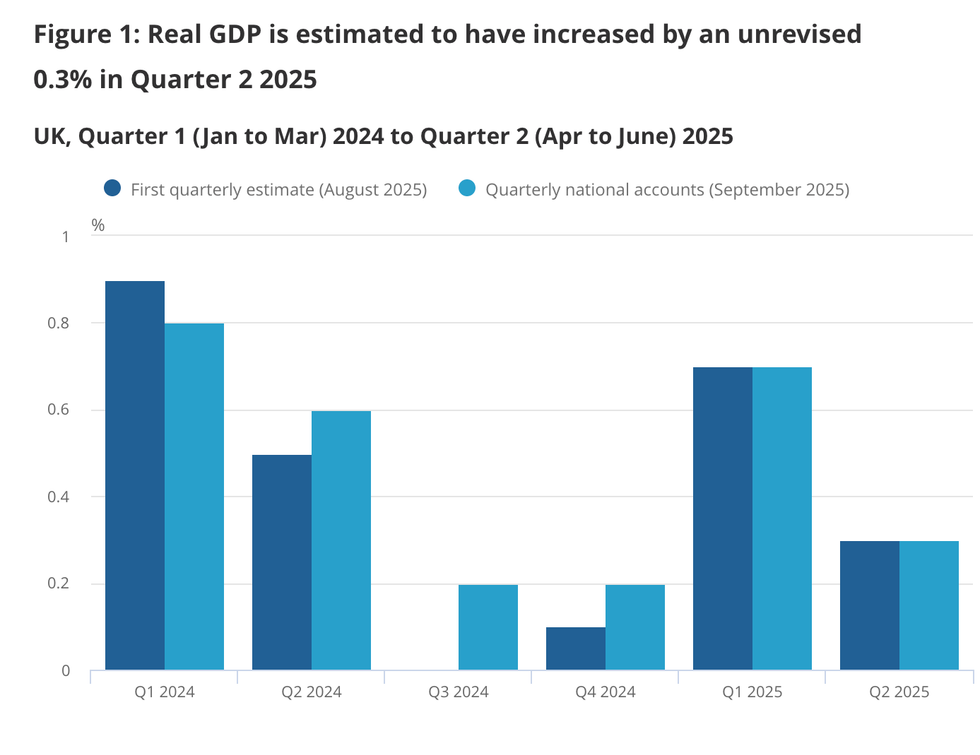The UK economy will receive a £7.5billion boon by tackling “blockers” using the court system to prevent major infrastructure projects from being given the green light, Chancellor Rachel Reeves has confirmed.
Ms Reeves has revealed plans to slash the duration of judicial review proceedings by as much as six months in a move designed to prevent legal obstacles from derailing significant infrastructure developments.
The Chancellor’s initiative targets those individuals, campaigners and activist groups use court challenges to obstruct projects, citing the Sizewell C nuclear facility as an example.
Ministers will collaborate with the judiciary to accelerate the legal process, which the Government argues has been exploited to deliberately delay vital national infrastructure through prohibitive costs associated with prolonged proceedings.

The reforms represent the Chancellor most recent effort to stimulate economic expansion by streamlining the planning system following updated gross domestic product (GDP) projections from the International Monetary Fund (IMF).
According to the organisaiton, the UK is set to be the second-fastest-growing of the world’s most advanced economies this year, sitting at 1.3 per cent GDP this year and next.
However, the IMF also forecast that per head basis economic output is only set to grow 0.4 per cent in 2025 and 0.5 per cent in 2026, placing Britain at the bottom of the G7 league table.
As part of its latest efforts to bolster GDP growth, the Treasury projects its attempt to tackle judicial “blockers” will generate economic worth £7.5billion across the coming decade.

Major road construction projects currently face legal expenses reaching £121million per scheme when dealing with court challenges.
The Government intends to achieve these time reductions through cooperation with members of the judiciary, forming part of a comprehensive overhaul of planning procedures.
These financial benefits stem from both the accelerated completion of infrastructure projects and the substantial decrease in litigation costs that developers currently bear when facing protracted legal disputes.
In a statement, Ms Reeves said: “The previous Government sided with the blockers, who held our economy to ransom for too long, abusing the lengthy judicial review process to delay critical national infrastructure projects and holding back economic growth.
“Our planning reforms are set to benefit the economy by up to £7.5billion over the next 10 years, so whether through reducing the length of the judicial review process, tearing up burdensome regulations, or streamlining planning permissions with AI, we want to go further still by backing the builders, not the blockers, and deliver national renewal by getting Britain building.”
Government data reveals that among 34 infrastructure developments subjected to judicial review proceedings since 2008, merely four resulted in decisions that prevented the projects from proceeding.
The Chancellor unveiled these reforms while visiting Washington DC to promote Britain as an attractive destination for international investment.
LATEST DEVELOPMENTS:
- Lee Anderson fumes at Labour for ‘blaming Nigel Farage’ for ‘chaotic’ economy: ‘Just ridiculous!’
- MONEY POLL: Inflation or interest rates – which would you prefer was lower? Vote now
- GB News’ Katherine Forster delivers ‘bad news for Britain’ in shocking IMF warning

Ahead of her trip to the US, Ms Reeves said: “Our Plan for Change is delivering national renewal built on the rock of economic stability – the foundation for more security, more respect and more opportunity for every part of the UK.
“In Washington I will showcase Britain’s commitment to fiscal responsibility – while creating the conditions to boost productivity, attract investment and secure our place as a strong and credible partner in a stable global economy.”
Today’s announcement follows Monday’s introduction of multiple planning Bill amendments designed to expedite construction of water reservoirs, onshore wind installations and residential developments.
Our Standards: The GB News Editorial Charter







Follow